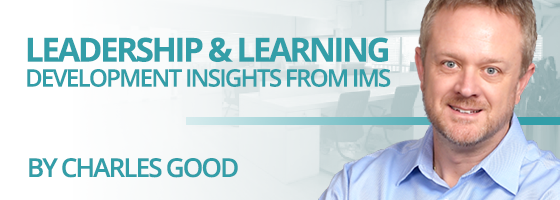As the world around us rapidly changes, leaders must stay current on innovative thought leadership in order to remain competitive and future-proof their organizations. As such, we will look at how the concepts of progressive thinking and creative problem-solving can be applied to benefit businesses and industries across the board. We’ll explore different methods for staying current with trends, helping employees remain engaged in learning opportunities, and fostering innovation within our teams. By familiarizing yourself with these strategies, you can drive success with innovative thinking.
KEEP UP WITH INDUSTRY TRENDS
A good leader stays informed and aware of industry trends and fosters similar behavior in their employees. Not just to stay ahead but to be informed of the changing market and competition.
Action times to consider:
- Regularly Review Industry Publications: Dedicate weekly time to scan key journals, magazines, or online platforms relevant to your industry.
- Attend Webinars and Workshops: Block out time in your calendar monthly or quarterly to participate in webinars. This not only keeps you updated but also offers networking opportunities.
FOSTER AN INNOVATIVE MINDSET
Transformative change happens when employees are encouraged to think and collaborate without limitations, leading to new and innovative ideas. Promote a culture where ideas, feedback, and creativity are welcome and rewarded.
Action items to consider:
- Dedicated Innovation Time: Allocate a set amount of time each week (e.g., Google’s “20% time”) for employees to work on passion projects or new ideas outside their regular job responsibilities.
- Idea Repository: Create a digital platform or physical space where employees can submit and discuss ideas. This encourages a culture where every idea is valued.
- Recognize and Reward Innovation: Implement a reward system to acknowledge employees with groundbreaking ideas or innovative solutions to problems.
ENCOURAGE CREATIVE PROBLEM-SOLVING TECHNIQUES
The world is complex, and challenges will always arise. Leaders must create opportunities for employees to use creativity and innovation to develop problem-solving skills. Provide challenges that require out-of-the-box thinking through gamification, simulations, and interactive exercises. IMS educator, Dr. Iris Firstenberg, author of the book Extraordinary Outcomes: Shaping an Otherwise Unpredictable Future, discusses two approaches to problem-solving. The deficit approach is where you look at the worst parts of the problem and use all your resources to fix those issues. The preferred approach for creative problem solving is to amplify the positive through the positive deviance approach. Now, you are focusing on what is going right. You are finding out what is working and strengthening it. Peter Drucker’s statement epitomizes the positive deviance approach, “We should starve problems and feed opportunities.”
Action items to consider:
- Six Thinking Hats: Use Edward de Bono’s “Six Thinking Hats” method, where each ‘hat’ represents a different way of thinking, from optimistic to critical and everything in between.
- SWOT Analysis: Evaluate the Strengths, Weaknesses, Opportunities, and Threats related to the problem. This can give a holistic view and uncover hidden solutions.
- Inverse Thinking: Turn the problem on its head. Ask yourself, “What would I do if I wanted the opposite outcome?” Sometimes, understanding what not to do can point you toward what should be done.
The only constant in life is change. To succeed in business, we must adapt if we are going to drive success through innovation. By staying informed about industry trends, promoting innovative thinking, and modeling desirable behaviors, a business can remain relevant and thriving in the future. Invest in your employees and embrace the benefits of progressive thinking.
If you would like to learn more about this topic you may want to watch my interview with Dr. Iris Firstenberg. We also have a great blog on Developing Creativity and Innovation.
ABOUT CHARLES GOOD
Charles Good is the president of The Institute for Management Studies, which provides transformational learning experiences that drive behavioral change and develop exceptional leaders. Charles is an innovative and resourceful leader who specializes in bringing people together to develop creative organizational and talent strategies that enable business results. His areas of expertise include assessing organizational skill gaps and leading the design, creation and delivery of high impact, innovative learning solutions that achieve business goals.
